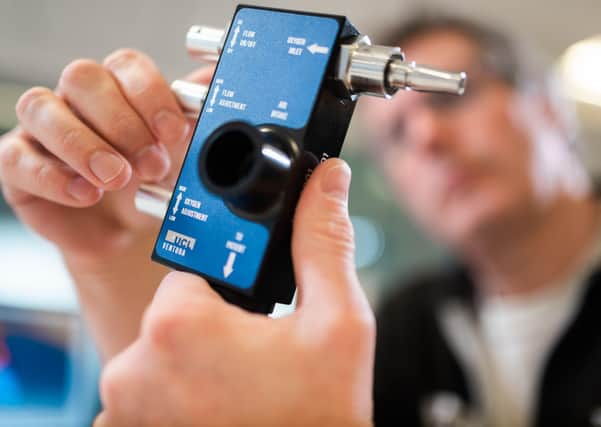Coronavirus crisis sparked this invention and could lead to more – Angus Robertson


Some of the greatest innovations have come at times of crisis, and so it seems now with a new breathing aid developed with the Mercedes Formula 1 team. Together with mechanical engineers and medics they have developed a breathing aid that can help coronavirus patients out of intensive care.
The CPAP device which maintains continuous positive airway pressure has already been road tested in Italian and Chinese hospitals to help Covid-19 patients.
Advertisement
Hide AdAdvertisement
Hide AdBecause it provides better breathing support than an oxygen mask without the need for a ventilator, which are in short supply, it has the potential to be game-changing.
A mix of oxygen and air is pushed into the mouth and nose at a continuous rate, which assists increasing the amount of oxygen getting into the lungs.
Without requiring sedation and the invasive procedure for ventilation, it could take pressure off the hard-pressed acute medical staff too.
Remarkably the CPAP aids took less than 100 hours to get from the initial meeting stage to first production and the device has now been recommended for use by the Medicines and Healthcare products Regulatory Agency, which gives the green light for medical devices in the UK.
Advertisement
Hide AdAdvertisement
Hide AdA hundred of the new devices are being used already for clinical trials, and could be part of a speedy rollout to hospitals around the country.
Congratulations to the developers at University College London, the University College London Hospital and Mercedes Formula One.
Let’s just hope this is the first of a range of life-saving initiatives, including new testing methods and ultimately the vaccine we hope will be with us soon.
